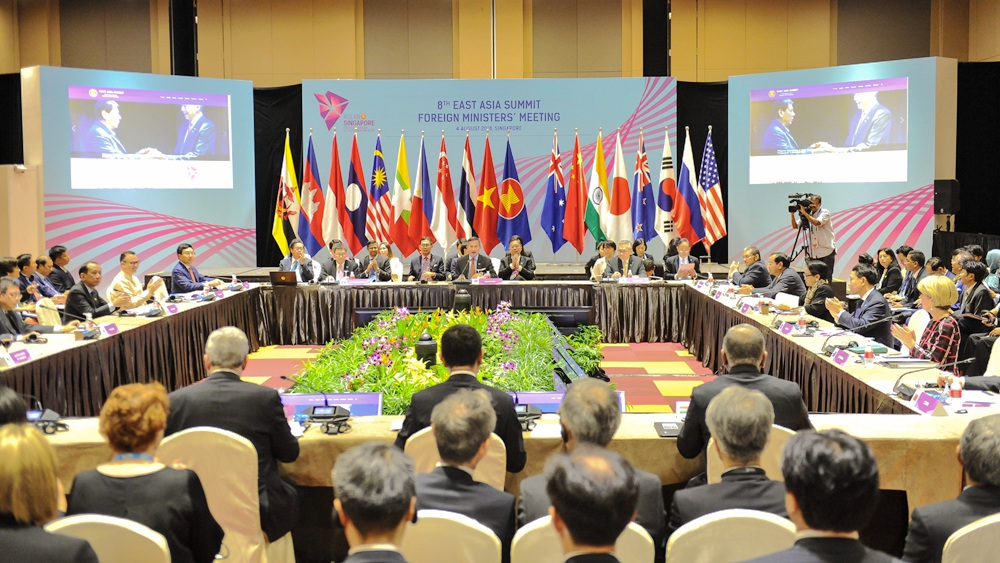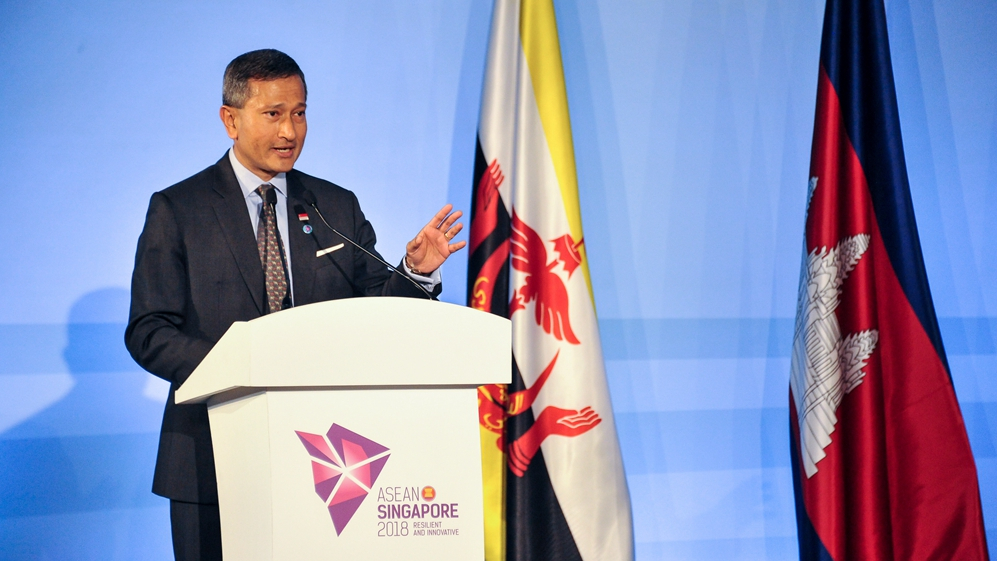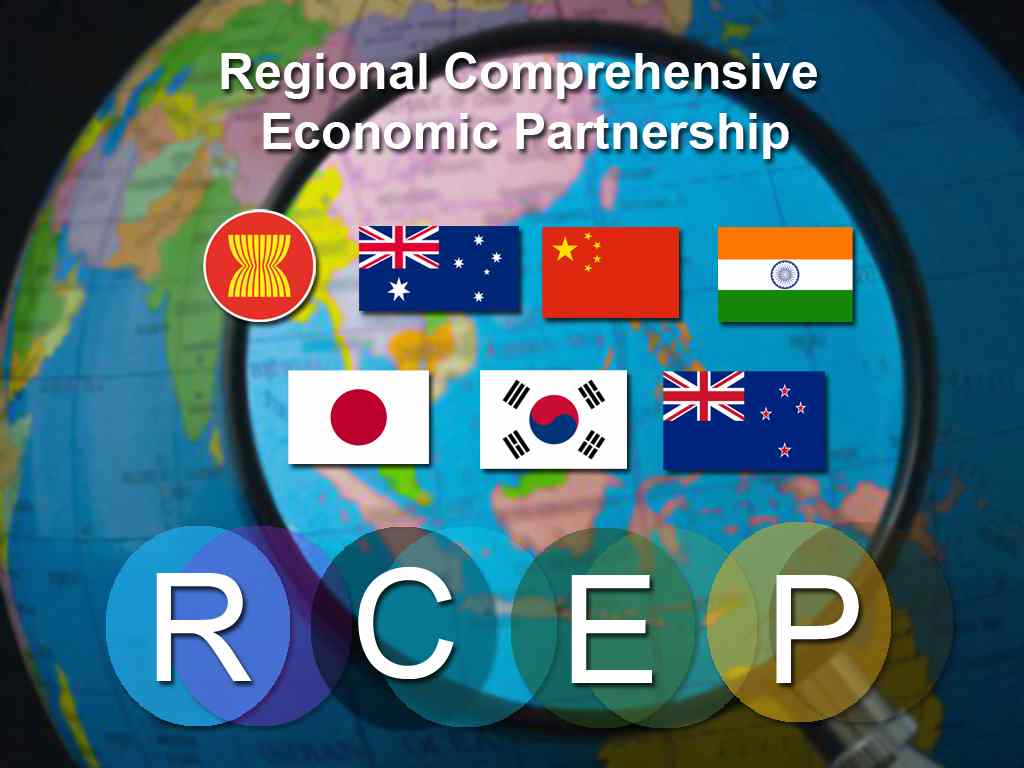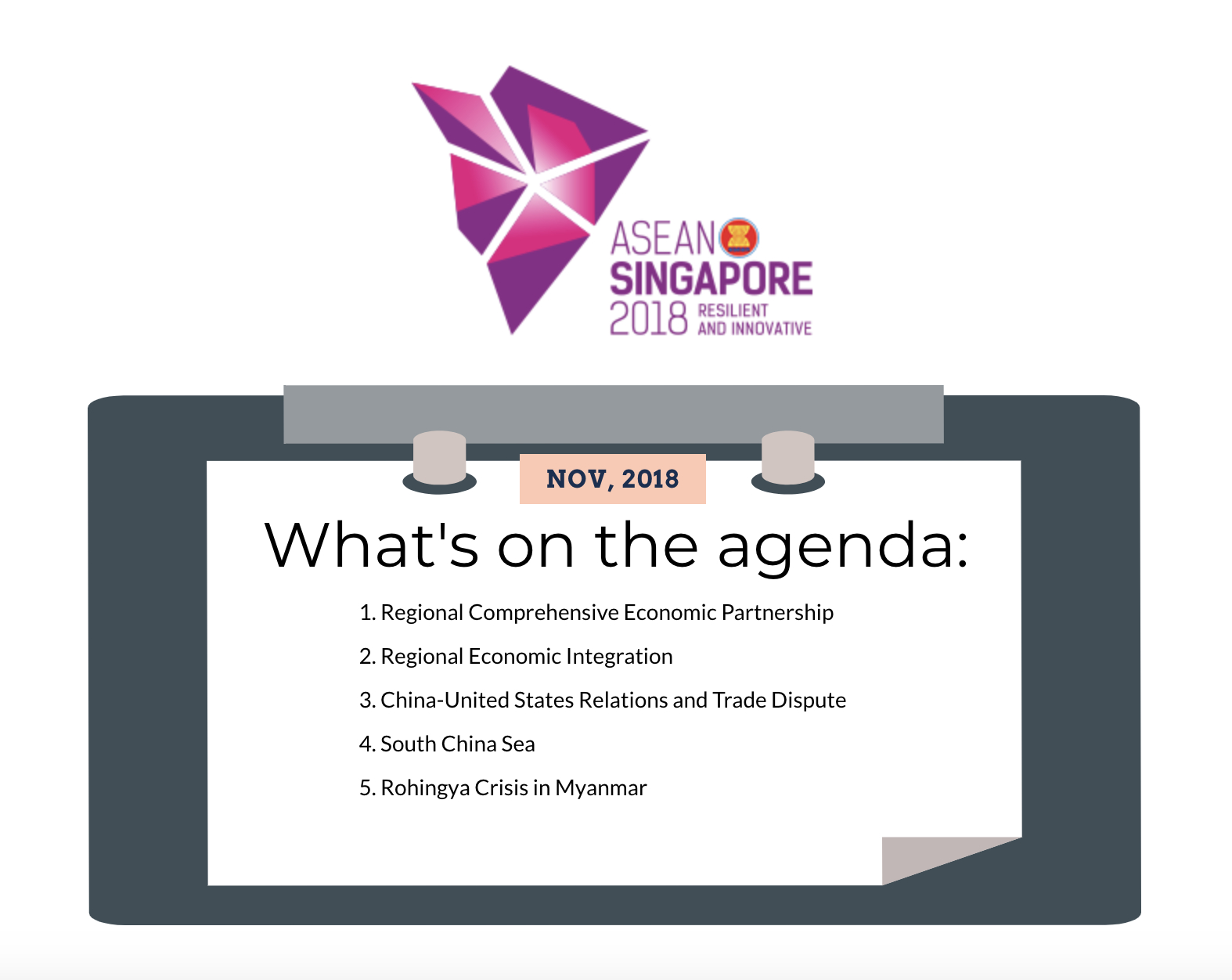
World
18:38, 10-Nov-2018
What's on the agenda at upcoming ASEAN summit
Updated
18:32, 13-Nov-2018
By Derek Cai

The 10 leaders from the Association of Southeast Asian Nations (ASEAN) member states prepare to discuss regional issues at their 33rd annual summit from November 11 to 15 in Singapore.
At the conference, ASEAN leaders will also meet with their counterparts from China, Japan, South Korea, Russia and the United States.
The conclusion of the China-backed Regional Comprehensive Economic Partnership (RCEP) will find center stage at the meeting. The leaders are slated to meet on November 14 to finalize the agreement.
The 16-signatory RCEP deal has drawn attention especially after Washington pulled out of the Comprehensive and Progressive Agreement for Trans-Pacific Partnership (CPTPP),

Vivian Balakrishnan, Singapore Minister for Foreign Affairs, speaks at the ASEAN Foreign Ministers Meeting 2018. /CGTN Photo
Vivian Balakrishnan, Singapore Minister for Foreign Affairs, speaks at the ASEAN Foreign Ministers Meeting 2018. /CGTN Photo
Launched six years ago, the RCEP deal includes the 10 ASEAN members, along with China, India, Japan, Australia, New Zealand, and South Korea, and is expected to grant several billion people access to unfettered trade.
Singapore's then-trade minister Lim Hng Kiang in March said that all negotiating parties harbor a "strong political will" to ratify RCEP by the year's end, a sentiment echoed by the current minister for trade Chan Chun Sing.
"We are now at the critical stage of our discussion over the next two weeks and we will do our best working together between Singapore and China and the 14 other countries to try to achieve a substantial conclusion of the RCEP," Chan told the Singapore Business Review earlier this week.

RCEP signatories. /Photo via asean.org
RCEP signatories. /Photo via asean.org
But some analysts say negotiations may yet still be stonewalled by bureaucracy and disagreements, even though all parties are racing to reach a "substantial conclusion." For example, India's demand for freer movements of its professional workers may pose as a hurdle.
According to Dr. Pradumna Rana, an associate professor at S.Rajaratnam School of International Studies, a think tank in Singapore, only five out of 21 chapters of the agreement have been concluded, and some countries are still in parley.
"A two-month time is too short to resolve all the impending and outstanding issues. A reasonable expectation is that RCEP could be finalized in 2019," said Dr. Rana.
"Now with the Sino-US trade conflicts in the background, there is greater urgency to conclude RCEP as soon as possible," he said.

An infographic of what's on the agenda. /CGTN Photo
An infographic of what's on the agenda. /CGTN Photo
By all indications, talks of economic integration in the region will also figure high on the list during this meeting. ASEAN is set to become the world's fourth-largest economy by 2030, with a booming 642 million people and quickly expanding.
The regional organization has said that its member states are committed to promote stronger intra-regional economic flow by tearing down tariffs among themselves, and commit to building institutions to advance their national economies.
Issues with regard to the South China Sea, the Sino-US trade dispute, and the Rohingya crisis, will also find a seat on the discussion table, with attendees such as Chinese Premier Li Keqiang, US Vice President Mike Pence, and Myanmar's leader Aung San Suu Kyi.
Happening parallel to the summit is the 21st China-ASEAN leaders meeting, the ASEAN Plus Three Summit, and the East Asia Summit.
Singapore, who holds the chairmanship for ASEAN meetings this year, will hand over the baton to Thailand at the end of the five-day conference.

SITEMAP
Copyright © 2018 CGTN. Beijing ICP prepared NO.16065310-3
Copyright © 2018 CGTN. Beijing ICP prepared NO.16065310-3